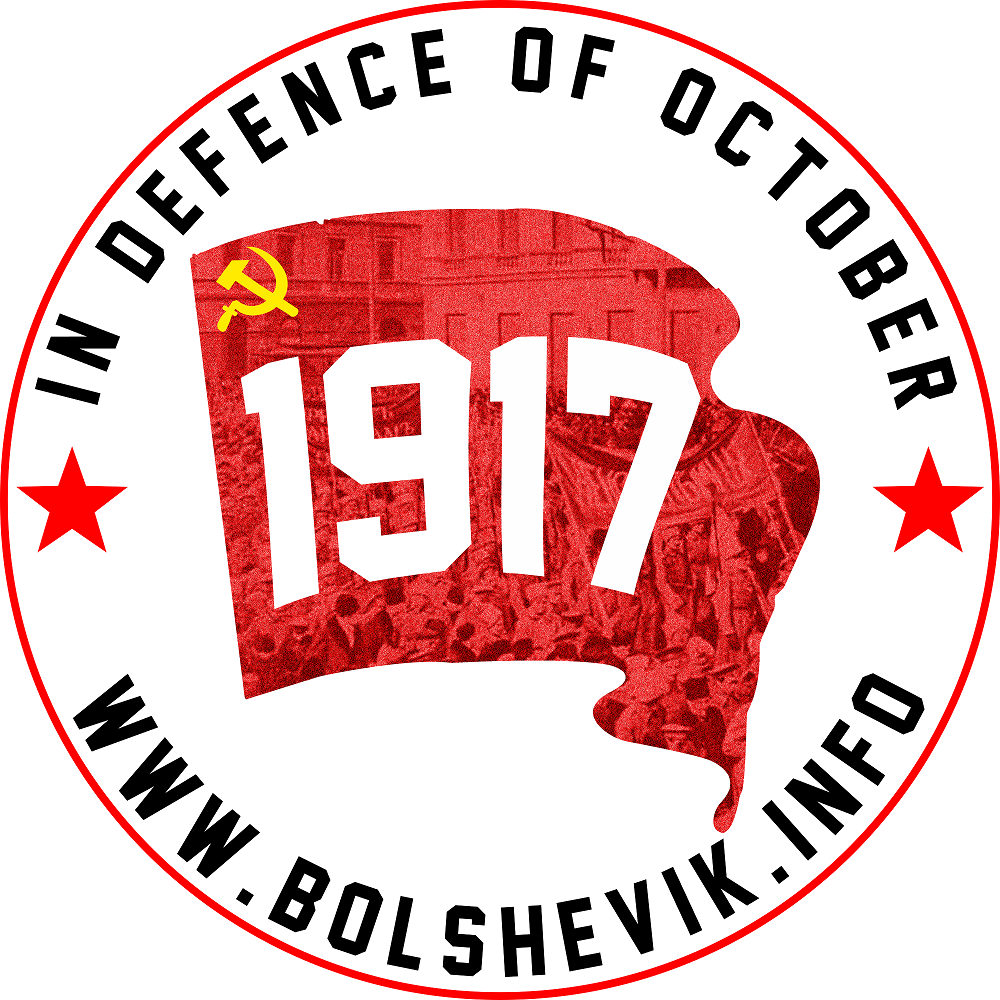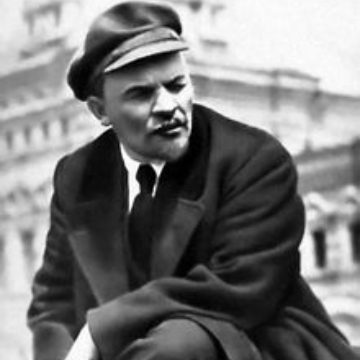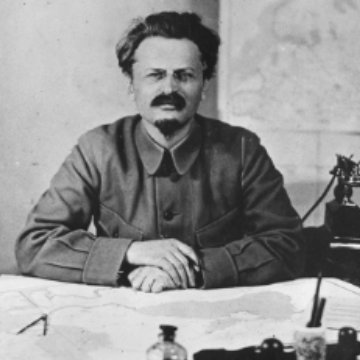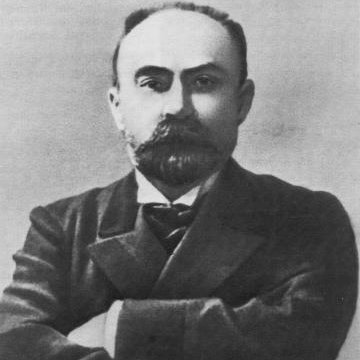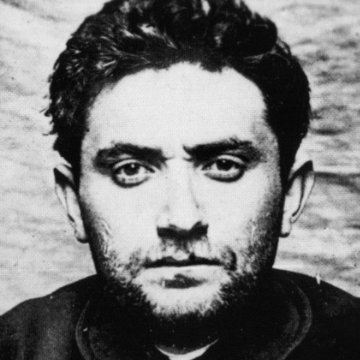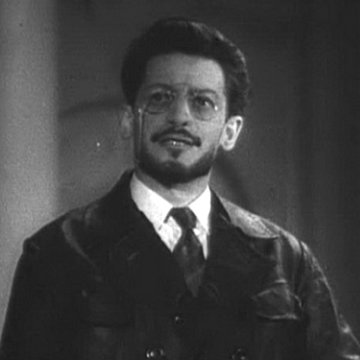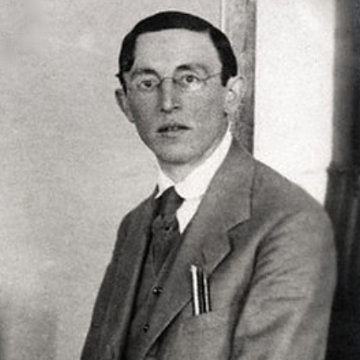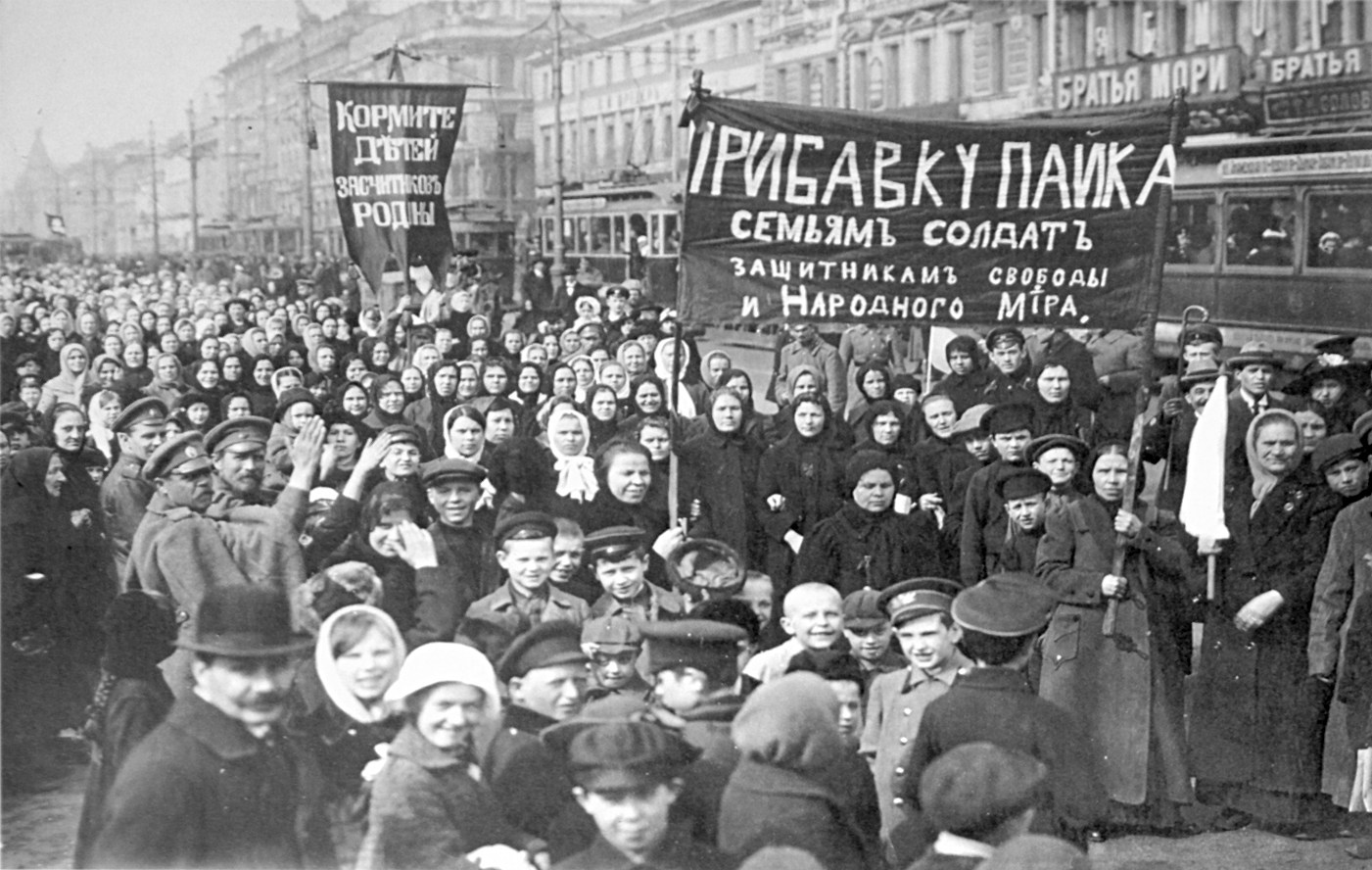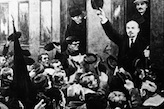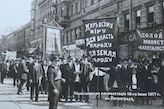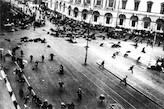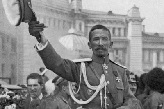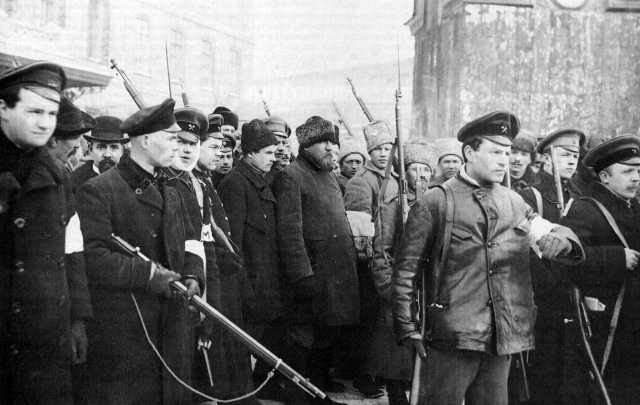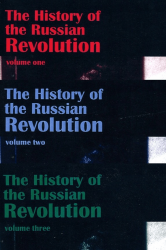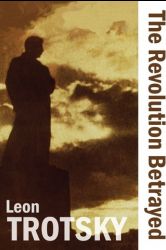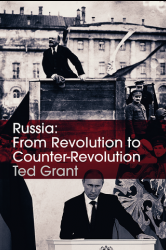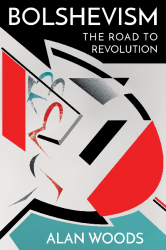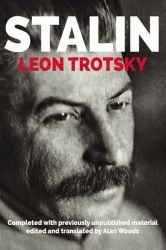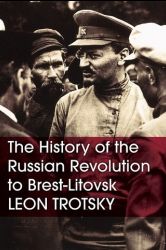"Down with the counter-revolutionary bourgeoisie! Long live the free union of free peasants and workers of a free Ukraine with the workers and peasants of revolutionary Russia!"
The new, coalition Provisional Government’s policy failure is becoming more and more obvious. The Universal Act on the organisation of the Ukraine, issued by the Ukrainian Central Rada[1] and adopted on June 11, 1917, by the All-Ukraine Army Congress, plainly exposes that policy and furnishes documentary proof of its failure.
“Without seceding from Russia, without breaking away from the Russian State," reads the Act, “let the Ukrainian people have the right to shape their own life on their own soil.... All laws by which order is to be established here in the Ukraine shall be passed solely by this Ukrainian Assembly. And laws establishing order throughout the Russian State must be passed by the All-Russia Parliament.”
These are perfectly clear words. They state very specifically that the Ukrainian people do not wish to secede from Russia at present. They demand autonomy without denying the need for the supreme authority of the “All-Russia Parliament”. No democrat, let alone a socialist, will venture to deny the complete legitimacy of the Ukraine’s demands. And no democrat can deny the Ukraine’s right to freely secede from Russia. Only unqualified recognition of this right makes it possible to advocate a free union of the Ukrainians and the Great Russians, a voluntary association of the two peoples in one state. Only unqualified recognition of this right can actually break completely and irrevocably with the accursed tsarist past, when everything was done to bring about a mutual estrangement of the two peoples so close to each other in language, territory, character and history. Accursed tsarism made the Great Russians executioners of the Ukrainian people, and fomented in them a hatred for those who even forbade Ukrainian children to speak and study in their native tongue.
Russia’s revolutionary democrats, if they want to be truly revolutionary and truly democratic, must break with that past, must regain for themselves, for the workers and peasants of Russia, the brotherly trust of the Ukrainian workers and peasants. This cannot be done without full recognition of the Ukraine’s rights, including the right to free secession.
We do not favour the existence of small states. We stand for the closest union of the workers of the world against “their own” capitalists and those of all other countries. But for this union to be voluntary, the Russian worker, who does not for a moment trust The Russian or the Ukrainian bourgeoisie in anything, now stands for the right of the Ukrainians to secede, without imposing his friendship upon them, but striving to win their friendship by treating them as an equal, as an ally and brother in the struggle for socialism.
* *
*Rech, the paper of the embittered bourgeois counter revolutionaries, who are half demented with rage, savagely attacks the Ukrainians for their “unauthorised” decision. “That act by the Ukrainians," it says, “is a downright crime under the law, and calls for the immediate application of severe legitimate punitive measures." There is nothing to add to this attack by the savage bourgeois counter-revolutionaries. Down with the counter-revolutionary bourgeoisie! Long live the free union of free peasants and workers of a free Ukraine with the workers and peasants of revolutionary Russia!
Notes
[1] The Ukrainian Central Rada (Council) was a counter-revolutionary bourgeois nationalist organisation founded in April 1917 at the All-Ukraine National Congress in Kiev by a bloc of Ukrainian bourgeois and petty-bourgeois nationalist parties and groups. M. S. Grushevsky, an ideologue of the Ukrainian bourgeoisie, was its chairman and V. K. Vinnichenko its vice-chairman. Among its members were Petlyura, Yefremov, Antonovich and other nationalists. Socially, the Rada relied for support on the urban and rural bourgeoisie, the kulaks, and the petty-bourgeois nationalist intellectuals. It tried to consolidate the power of the Ukrainian bourgeoisie and landowners and to establish a Ukrainian bourgeois state, taking advantage of the national liberation movement in the Ukraine. Under the guise of lighting for national independence, it strove to win the support of the Ukrainian people, divert thorn from the all-Russia revolutionary movement, bring thorn under the sway of the Ukrainian bourgeoisie, and prevent the victory of the socialist revolution in the Ukraine. The Rada supported the Provisional Government despite differences over the issue of granting autonomy to the Ukraine.
Following the victory of the October Socialist Revolution the Rada declared itself the supreme organ of the “Ukrainian People’s Republic” and campaigned openly against Soviet rule. It was one of the principal centres of the counter-revolutionaries of the whole of Russia.
Source: Marxist Internet Archive.

